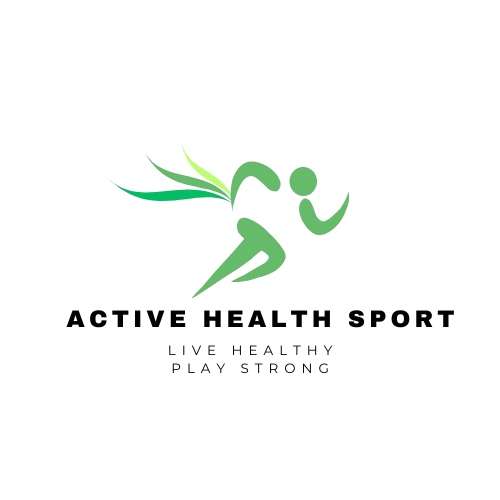Understanding the Mind-Body Connection in Sports
Athletes across all levels are increasingly recognizing the mind-body connection in sports as a crucial factor in achieving peak performance. But what exactly does this connection mean, and how can it benefit athletes? Let’s dive into this fascinating subject and explore its potential to transform your game.
The mind-body connection refers to the interplay between an athlete’s mental state and their physical performance. It’s the idea that thoughts, emotions, and mental focus directly influence physical abilities. Whether you’re sprinting, swimming, or scoring a goal, the state of your mind can either enhance or hinder your performance.
Athletes who master this connection can regulate stress, stay focused, and maintain confidence, all of which contribute to better outcomes on the field or court.
The Science Behind the Mind-Body Connection
Research shows that mental processes like visualization, mindfulness, and goal setting stimulate the same brain regions activated during physical movement. When you visualize yourself succeeding in a specific sport, your brain sends signals to your muscles, essentially preparing your body for action.
Moreover, stress and anxiety, two common challenges for athletes, trigger the release of hormones like cortisol, which can negatively impact muscle coordination and endurance. By managing mental stress, athletes can ensure their bodies remain primed for performance.
What are the Benefits of Understanding the Mind-Body Connection?
The mind-body connection in sports offers a wide range of advantages that go beyond physical performance. Athletes who tap into this connection not only enhance their game but also improve their overall well-being. Here’s a deeper dive into these benefits:
Enhanced Performance
Athletes who prioritize mental clarity and focus often achieve better results. The ability to stay present and visualize success leads to smoother execution of skills and sharper decision-making.
- Refined Technique: Visualization helps refine complex movements by mentally rehearsing them. For example, a gymnast imagining a flawless routine primes their muscles for precise execution.
- Better Adaptability: Mental training enables athletes to stay flexible and make quick adjustments during unexpected challenges, like sudden changes in-game strategy.
- Consistent Focus: Staying mentally engaged throughout a match or race prevents lapses in concentration, which can be the difference between winning and losing.
For elite athletes, these fine margins in performance can mean breaking records or achieving personal bests.
Improved Recovery
The connection between the mind and body plays a crucial role in the recovery process. Positive mental states have been shown to influence physical healing and endurance.
- Stress Reduction: Stress hinders the body’s ability to repair itself by increasing inflammation and slowing down tissue recovery. Relaxation techniques, such as meditation or yoga, lower stress levels and promote healing.
- Faster Healing: A mental focus on recovery goals can speed up the body’s response to treatments like physical therapy. Visualization of healthy, functional movements encourages the brain to signal the body toward improvement.
- Pain Management: Techniques like mindfulness can help athletes manage pain better by shifting focus away from discomfort and toward recovery milestones.
This improved recovery not only shortens downtime but also helps athletes return stronger.
Reduced Risk of Injury
The connection between a clear mind and a healthy body is essential for avoiding injuries. Lack of mental focus, stress, or overthinking can result in poor form and increased injury risks.
- Maintaining Proper Technique: A focused mind ensures athletes stay aware of their body’s movements, preventing improper technique during training or competition.
- Minimizing Overexertion: Athletes who understand their mental limits are less likely to push themselves to dangerous extremes, which could lead to strain or fatigue-related injuries.
- Improved Coordination: A calm and focused mind enhances motor coordination, reducing the likelihood of accidents caused by missteps or incorrect timing.

Greater Resilience
Resilience is a hallmark of successful athletes, and the mind-body connection fosters this ability by providing tools to overcome adversity.
- Mental Toughness: Athletes who understand the power of their minds are better equipped to face setbacks, whether it’s losing a match, dealing with criticism, or recovering from an injury.
- Bounce-Back Ability: Visualization and self-affirmation create a sense of control and optimism, enabling athletes to recover quickly from challenges.
- Sustained Motivation: The connection also reinforces intrinsic motivation by helping athletes focus on their purpose and long-term goals, even during tough times.
Resilience isn’t just about handling defeat; it’s about coming back stronger, both mentally and physically.
Also Read: How to Build Healthy Habits That Stick | Active Health Sport
Comprehensive Development
One often-overlooked benefit of the mind-body connection is its impact on overall well-being. Athletes who nurture this connection often report feeling more balanced and fulfilled in their personal lives.
- Increased Self-Awareness: Understanding how the mind affects the body helps athletes better recognize their limits and potential.
- Improved Relationships: A calm and centered mind translates to better communication and teamwork, which are essential skills in team sports.
- Long-Term Heart Health: Integrating mental strategies like stress management reduces the risk of burnout, a common issue in high-pressure sports environments.
By focusing on the mind-body connection, athletes not only enhance their performance but also enjoy greater life satisfaction and emotional balance.
Techniques to Strengthen the Mind-Body Connection
1. Visualization
Visualization is a powerful tool where athletes imagine themselves performing perfectly. Picture yourself hitting that perfect serve or crossing the finish line ahead of everyone else. This mental rehearsal trains your brain to execute these actions when the time comes.
2. Mindfulness Practices
Mindfulness, including meditation and deep breathing exercises, helps athletes stay present and focused. By concentrating on the “now,” you reduce the mental distractions that can hinder performance.
3. Positive Self-Talk
Replace negative thoughts with positive affirmations. Instead of saying, “I can’t do this,” tell yourself, “I am capable and ready to succeed.” A positive mindset enhances physical energy and confidence.
4. Goal Setting
Clear, realistic goals provide motivation and a sense of direction. Break down larger objectives into smaller, achievable steps, and celebrate each milestone to stay motivated.
How Coaches Can Support the Mind-Body Connection
Coaches hold a pivotal role in nurturing the relationship between the mind and body for their athletes. Effective strategies include integrating mental training with physical conditioning, such as teaching mindfulness practices to help athletes stay focused and composed under pressure.

Encouraging stress management techniques, like deep breathing exercises or visualization, can further support athletes in achieving a balanced mindset during intense training or competition. Moreover, fostering open communication about mental health creates a supportive environment where athletes feel comfortable discussing challenges or seeking help when needed.
It will boost emotional resilience and enhance team dynamics and trust. Coaches who emphasize the value of mental well-being alongside physical fitness contribute to a culture where the mind-body connection can flourish, paving the way for sustainable success both on and off the field.
Real Athletes, Real Transformation | Mind-Body Connection in Action
Understanding the mind-body connection is more than theory, it’s a transformative tool athletes use to break through barriers. At Active Health Sport, we’ve collected inspiring stories from individuals who harnessed mental focus, emotional balance, and physical awareness to excel in their sport and overall wellness.
🏅 Story #1: Elijah Garrison – The Wrestler Who Conquered Performance Anxiety
Age: 25
Location: Lincoln, Nebraska
Elijah, a collegiate wrestler, had the talent but struggled with performance anxiety before big matches. Despite top physical conditioning, his nerves would sabotage his focus and stamina.
With the help of a sports psychologist, Elijah began practicing visualization techniques, breath control, and meditation. By building mental routines before practice and competitions, he felt more present and in control of his body during high-pressure moments.
“Once I trained my mind the same way I trained my body, everything changed. I stopped overthinking and started dominating.” – Elijah Garrison
🧘♀️ Story #2: Makenzie Ford – A Gymnast’s Return After Injury
Age: 19
Location: Scottsdale, Arizona
Makenzie, a competitive gymnast, suffered a serious ankle injury that sidelined her for months. During recovery, she felt mentally disconnected from her sport and feared re-injury.
Her coach introduced her to mindful movement therapy, combining guided meditation with slow flexibility exercises. Over time, she rebuilt trust in her body, syncing each movement with deep breathwork and mental imagery. She returned to competition with stronger confidence and body awareness than ever before.
“Learning to listen to my body through mindfulness helped me recover, not just physically, but emotionally.” – Makenzie Ford
🏃 Story #3: Coach Tyler Reeves – Building Mental Resilience in Youth Athletes
Age: 39
Location: Austin, Texas
Tyler, a former track athlete and now a youth coach, noticed his students were burning out quickly. Physical drills weren’t enough, they needed mental tools to stay motivated and resilient.
He introduced his team to journaling, positive self-talk exercises, and short mindfulness practices before workouts. Over time, his athletes reported better concentration, fewer injuries, and a stronger sense of purpose in training.
“Once my team understood the power of mindset, they trained smarter, recovered faster, and performed like never before.” – Coach Tyler Reeves
These stories remind us that sports are deeply mental. The connection between body and mind is real, and athletes who train both are more resilient, focused, and fulfilled. Whether you’re recovering, competing, or just starting out, nurturing that connection could be the game-changer you’ve been waiting for.
Overcoming Common Challenges
While the mind-body connection in sports offers numerous benefits, athletes often face challenges in maintaining it consistently. Addressing these obstacles effectively can help maximize performance and overall well-being. Let’s take a closer look at how to overcome common hurdles like mental fatigue, performance anxiety, and maintaining consistency.
Mental Fatigue
Mental fatigue occurs when the brain is overworked, often due to intense training schedules, competition pressure, or balancing personal and professional responsibilities. This exhaustion affects concentration, decision-making, and physical performance.
How to Overcome Mental Fatigue
- Prioritize Rest and Recovery
- Sleep is essential for cognitive and physical recovery. Aim for 7–9 hours of quality sleep each night to ensure your brain and body are ready to perform.
- Incorporate regular breaks during training sessions to avoid burnout. Even a 5-minute mental pause can recharge your focus.
- Use Relaxation Techniques
- Progressive Muscle Relaxation: Tense and release different muscle groups to reduce overall tension.
- Guided Meditation: Listen to audio programs that guide you through calming exercises to refresh your mind.
- Stay Hydrated and Nourished
- Dehydration and poor nutrition can exacerbate fatigue. Consume balanced meals rich in protein, carbohydrates, and healthy fats, and drink plenty of water throughout the day.
- Engage in Non-Sporting Activities
- Sometimes, stepping away from the sport temporarily can help. Reading, spending time with loved ones, or enjoying hobbies can rejuvenate mental energy.
Performance Anxiety
Athletes frequently encounter high-pressure situations, such as pivotal games or races, where the fear of failure can lead to performance anxiety. This anxiety disrupts focus, confidence, and physical coordination.
How to Manage Performance Anxiety
- Practice Breathing Exercises
- Deep breathing techniques can calm the nervous system and reduce anxiety. Try the 4-7-8 method: inhale for 4 seconds, hold for 7 seconds, and exhale for 8 seconds.
- Shift Focus to the Process
- Instead of obsessing over the outcome, concentrate on the steps needed to perform well. For instance, a tennis player might focus on their swing technique rather than the score.
- Prepare Thoroughly
- Confidence often comes from preparation. You’ll feel more equipped to handle game-day pressure by rehearsing scenarios and refining skills during practice.
- Reframe Nervous Energy
- Remind yourself that anxiety is a sign that you care about your performance. Transform nervousness into excitement by viewing it as a motivating force.
- Talk to a Sports Psychologist
- Professional guidance can help athletes develop personalized strategies to manage anxiety and maintain composure under pressure.
Consistency
Consistency is one of the biggest challenges in building a strong mind-body connection. Mental training, like physical conditioning, requires dedication and regular effort.
How to Maintain Consistency in Mind-Body Connection in Sports?
- Set a Routine
- Incorporate mental exercises, such as visualization or mindfulness, into your daily schedule. Treat these practices as essential as your physical training.
- Track Progress
- Keep a journal to record your mental training activities, challenges faced, and improvements noticed. Reflecting on progress helps maintain motivation.
- Combine Mental and Physical Training
- Integrate mental exercises into warm-ups or cool-downs. For example, use visualization before starting a sprint or mindfulness techniques during stretching sessions.
- Find an Accountability Partner
- Partner with a coach, teammate, or mentor who can remind you to stay consistent with your mental training practices.
- Celebrate Small Wins
- Recognize and reward yourself for progress. Whether it’s improved focus during a match or reduced anxiety, celebrating small victories reinforces positive habits.

Why Athletes Should Embrace the Mind-Body Connection?
In today’s competitive sports landscape, understanding and harnessing the mind-body connection is no longer optional, it’s essential. It’s not just about working harder but working smarter by integrating mental and physical strategies for success.
Whether you’re a weekend warrior or an aspiring professional, developing this connection can elevate your performance, boost your confidence, and help you achieve your goals. At Active Health Sport, we believe that every athlete has the potential to unlock their best performance through the power of the mind-body connection.
The mind-body connection in sports is your key to success. Embrace it and see the difference for yourself. That’s all from today, folks! If you have any questions or queries, feel free to comment below or email us.
You might also like…
- Why Mobility Matters More Than Muscle for CrossFit Progress
 In CrossFit culture, strength numbers often steal the spotlight: heavier deadlifts, faster WOD times, and bigger PRs. While muscle and power are essential, they are not the… Read more: Why Mobility Matters More Than Muscle for CrossFit Progress
In CrossFit culture, strength numbers often steal the spotlight: heavier deadlifts, faster WOD times, and bigger PRs. While muscle and power are essential, they are not the… Read more: Why Mobility Matters More Than Muscle for CrossFit Progress - Zone-2 Walking for CrossFit Athletes Explained
 In CrossFit, conditioning is often associated with intense, fast-paced WODs, high heart rates, and breathless finishes. While this intensity builds power and short-term fitness, it does not… Read more: Zone-2 Walking for CrossFit Athletes Explained
In CrossFit, conditioning is often associated with intense, fast-paced WODs, high heart rates, and breathless finishes. While this intensity builds power and short-term fitness, it does not… Read more: Zone-2 Walking for CrossFit Athletes Explained - How Low-Intensity Walking Restores the Nervous System
 CrossFit is designed to test physical limits. Heavy lifts, fast-paced metabolic conditioning, and complex gymnastic movements demand not only muscular strength but also significant nervous system output. … Read more: How Low-Intensity Walking Restores the Nervous System
CrossFit is designed to test physical limits. Heavy lifts, fast-paced metabolic conditioning, and complex gymnastic movements demand not only muscular strength but also significant nervous system output. … Read more: How Low-Intensity Walking Restores the Nervous System

Kait Amazra is the founder and lead writer of Active Health Sport. With over 25 years of experience in health, fitness, and wellness education, Kait combines professional expertise with a passion for helping people live stronger, healthier, and more balanced lives.
As a licensed health and fitness professional, Kait has worked alongside industry experts to deliver evidence-based insights on physical activity, nutrition, recovery, and holistic well-being. Through Active Health Sport, Kait’s mission is to make trusted, practical, and science-backed health information accessible to everyone, from beginners building new habits to athletes seeking peak performance.


Your point of view caught my eye and was very interesting. Thanks. I have a question for you.
Hi, thanks for replying. You can ask any questions you may have.